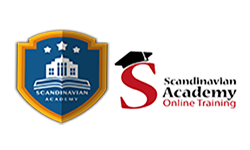Introduction
Business Analysis is the planning, eliciting, analysing, communication and management of the logical requirements of a business before a business information system is designed and built
Business analysis requires specialised knowledge and skills. The process of identifying and defining business requirements is very different from applying technology to address business requirements
Participants will gain knowledge of the best practices and methods for analysing the enterprise, planning and monitoring business analysis activities, eliciting requirements, analysing requirements, managing and communication requirements and assessing and validating business solutions
Version 2.0 of the Business Analysis Body of Knowledge (BABOK) will be used for delivery of the course. Delegates attending the course are entitled to 25 Continuing Development Units (CDUs)
This course aims to enable participants to achieve the following objectives:
- Understand the Role of the Business Analyst
- Plan Business Analysis Activities
- Analyse Enterprise Requirements
- Understand how to Manage and Communicate Requirements
- Define the Solution Scope
- Identify Stakeholders
- Elicit Stakeholder Requirements
- Model the Business Dimensions
- Write Effective Requirements
- Manage and Communicate Requirements
- Assess and Validate the Resulting Business Solutions.
Training Methodology
State-of-the-art business analysis methods and techniques are transferred by means of short, focused presentations which are followed by experiential learning workshop sessions. In these sessions the knowledge gained is applied to real-world examples and case studies. Rapid learning of the methods and techniques is achieved by means of group work, individual work, participant discussion, facilitator interaction and constructive feedback
Organisational Impact
- Improved integration between the business and the information technology department of the organisation
- The correct fit between the requirements of the organisation and information systems that are developed or procured
- Reduced information technology development risk, costs and time overruns
- Improved quality of information technology projects
Personal Impact
Delegates will achieve the following byt attending this course
- Be able to work effectively in a solutions development project
- Have the ability to confidently elicit business requirements from business users and other stakeholders
- Be able to identify the essential requirements of the business at all levels
- Effectively communicate business requirements to stakeholders
SEMINAR OUTLINE
Introduction to Business Analysis
- The role of the Business Analyst
- The Business Solutions Life Cycle (BSLC)
- Selecting the right Business Analysis Techniques
- The essentials of Enterprise Analysis
- Developing a Business case
- Defining Solution Scope
Analysing Requirement
- Identifying system users and other stakeholders
- The Architecture Framework
- An Introduction to Modelling Concepts
- Modelling Data Requirements
- Business Process Modelling for Business Analysis
- Writing Requirements
Eliciting Requirements
- Interviewing Methods
- Observing Business Activity
- Using Questionnaires
- Document Analysis and Observation
- Workshop Facilitation Techniques
Managing and Communicating Requirements
- How to Manage Conflicts and Issues
- Managing Requirements Change
- Maintaining Solution Scope
- Communicating Requirements to Stakeholders
- Gaining Knowledge from Projects
Solution Assessment and Validation
- Assessing solutions that best fits the requirements
- Identifying Gaps and Shortcoming
- Determining Workarounds and Changes
- Assessing the Performance of the Proposed Solution
- Carrying out User Acceptance Testing
Advantages of attending and participating in any online training program at the Scandinavian Academy for Training and Development in the Kingdom of Sweden
The trainee will receive a training bag that contains:
- The scientific material preserved on flash memory
- A paper certificate of attendance issued by the Scandinavian Academy for Training and Development in Arabic and English
- An electronic certificate of attendance issued by the Scandinavian Academy for Training and Development in Arabic and English
- The certificate can be attested by the Swedish Ministry of Foreign Affairs and the trainee’s embassy in the Kingdom of Sweden with an additional fee
Course Features
- Lectures 5
- Quizzes 0
- Duration 15 hours
- Skill level All levels
- Language English
- Students 50
- Certificate Yes
- Assessments Yes








